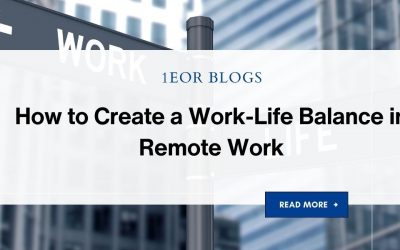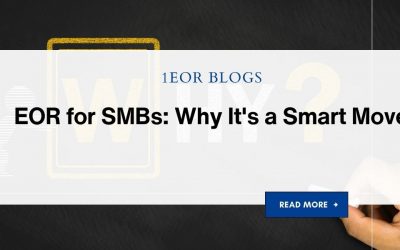As an EU-based company looking to hire talent across different member states, you may be wondering if using an employer of record (EOR) is necessary. After all, the freedom of movement principles within the EU allow for relatively straightforward hiring in other countries. However, there are several compelling reasons why an EOR can be highly beneficial for EU companies expanding their workforce internationally.
Navigating Local Employment Laws and Regulations
While EU directives and regulations supersede national laws to some extent, each member state still has its own unique set of local employment legislation. These laws cover various aspects such as minimum wage, working hours, paid leave, termination procedures, and more. Failing to comply with these regulations can result in costly penalties and legal complications.
An EOR like Remote provides expert guidance on all relevant local employment laws in the countries where you’re hiring. They ensure that your employment contracts are compliant and provide support throughout the entire employee lifecycle, from onboarding to termination. By staying up-to-date with changes to legislation, an EOR helps you maintain compliance without the need for extensive in-house expertise.
Simplifying Tax and Payroll Compliance
Tax and payroll laws also vary significantly across EU member states. Each country has its own tax rates, filing requirements, and reporting obligations. Navigating these complexities can be extremely time-consuming and risky, especially if you’re hiring in multiple countries simultaneously.
An EOR takes care of all tax and payroll-related matters on your behalf. They handle employee registrations, tax filings, and social security contributions in compliance with local regulations. This ensures that your company remains compliant while avoiding penalties and reputational damage.
Providing Cultural and Market Insights
Expanding into new European markets requires more than just legal and tax compliance. It’s also crucial to understand the cultural nuances and labor market conditions in each country where you’re hiring.
An EOR can provide valuable insights into local business customs, communication styles, and employee expectations. This knowledge helps you communicate effectively with your international team, build strong relationships, and integrate seamlessly into the new market.
EORs also offer guidance on competitive salary structures, popular benefits packages, and other factors that influence talent attraction and retention in each country. This strategic information allows you to build a motivated and engaged workforce that drives your success in the new market.
Strengthening Your Employer Brand
A strong employer brand is essential for attracting and retaining top talent in today’s competitive job market. When employees see that your company is committed to responsible employment practices and compliance with local labor laws, it enhances your reputation as a dependable and attractive employer.
An EOR streamlines the onboarding process, ensuring that new hires are set up for success from day one. This can lead to increased employee satisfaction, loyalty, and retention, which in turn reduces the costs associated with recruitment and training.
Moreover, a robust employer brand is attractive to investors and partners. By showcasing your commitment to responsible employment and EU regulations, you become a more appealing collaborator for valuable business relationships.
Enabling Flexibility and Scalability
Using an EOR provides flexibility when hiring across the EU. If you plan to hire in multiple countries, an EOR allows you to manage all those team members through a single platform, saving significant time and resources.
This flexibility comes in handy in various scenarios. For example, if you need to quickly scale up your workforce in response to a new project or opportunity, an EOR enables you to onboard employees efficiently without the usual administrative burdens. Conversely, if you need to downsize, an EOR can handle terminations and redundancies in a compliant manner.
Avoiding the Complexities of Setting Up Local Entities
Setting up a separate legal entity in each EU country where you want to hire can be a complex and costly process. It involves navigating local incorporation laws, obtaining necessary licenses and permits, and establishing payroll and HR systems.
An EOR eliminates the need for local entities by acting as the legal employer of record. They handle all the legal and administrative tasks associated with hiring, allowing you to focus on your core business activities.
This approach is particularly beneficial for small and medium-sized enterprises (SMEs) that lack the resources and expertise to navigate the complexities of global employment on their own.
Mitigating Employment Risks and Liabilities
When you hire employees directly, you assume all the risks and liabilities associated with employment. This includes potential legal issues, tax penalties, and employee-related disputes.
By using an EOR, these risks are largely transferred to the EOR provider. As the legal employer, the EOR takes responsibility for compliance with local laws, handling employee-related issues, and managing employment-related liabilities.
This risk mitigation is crucial when expanding into new markets, where the legal and cultural differences can be more pronounced. It provides peace of mind and allows you to focus on growing your business without worrying about employment-related complications.
Accessing a Global Talent Pool
One of the main advantages of hiring across the EU is the ability to access a diverse and highly skilled talent pool. By leveraging an EOR, you can tap into this global talent market without the typical barriers associated with international hiring.
EORs like Skuad have a presence in multiple European countries, allowing you to hire and onboard employees quickly and compliantly. This access to a wider talent pool increases your chances of finding the right candidates for your specific needs.
Moreover, by working with an EOR, you can offer competitive compensation packages that are tailored to local market conditions, making your job offers more attractive to top talent.
Choosing the Right EOR Partner
When selecting an EOR provider for your EU expansion, it’s crucial to choose a reputable and experienced partner. Look for an EOR with a proven track record of successful client engagements and positive references.
Ensure that the EOR has a strong presence in the specific countries where you plan to hire. This local expertise is essential for navigating the nuances of each market and ensuring compliance with local laws and regulations.
Additionally, consider the EOR’s servicing model and whether it aligns with your company’s needs. Look for a provider that offers a customizable and flexible approach, allowing you to scale up or down as needed.
Lastly, prioritize transparency when it comes to pricing and fees. Avoid EOR providers with hidden costs or unclear pricing structures. A reputable EOR should provide a clear breakdown of their fees and any additional costs associated with their services.
Conclusion
As an EU-based company, using an employer of record (EOR) can provide significant benefits when hiring across different member states. An EOR simplifies compliance with local employment laws, tax regulations, and cultural nuances, allowing you to focus on your core business activities.
By leveraging an EOR’s expertise and global presence, you can access a wider talent pool, strengthen your employer brand, and mitigate employment risks. However, it’s crucial to choose a reputable and experienced EOR partner that aligns with your company’s specific needs and growth objectives.
By partnering with the right EOR, EU companies can confidently expand their workforce across Europe, unlocking new opportunities for growth and success.


